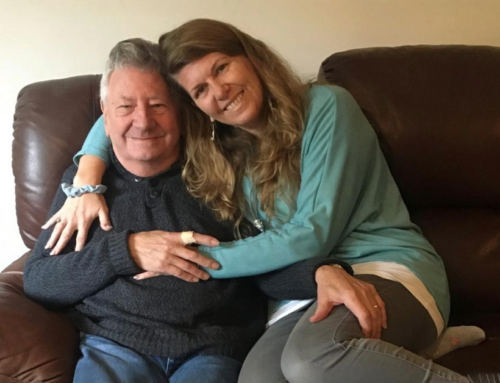So here you are, a decent, respectful person who doesn’t have communication problems with anyone. Except for that one person. They just don’t listen to you, they don’t value your opinion and you don’t feel respected by them.
But you’ve noticed that they don’t really listen to or value anyone, so it’s not personal, it’s just very annoying, especially when you know what you’re talking about and they clearly don’t.
It is not uncommon to be someone who gets along well with everyone, be known for your excellent communication skills and yet find that there’s one person who just doesn’t get it.
Mark’s story
I remember when a friend of mine (let’s call him Mark), who is known for getting along with just about anyone, was complaining to me about his new boss. Mark was passionate about his work, had worked in his organisation for over 15 years and was renowned as an expert in his field.
He was really aggrieved that his new boss talked to him as though he was an imbecile and had no interest in his thoughts or opinions.
Everyone agrees with me!
In passing, Mark subtly asked some other heads of departments about their experience of this man and was quite relieved to find that they all thought about him the same way – someone who was very much out for himself and not at all interested in anyone else’s opinions. They agreed that he definitely didn’t care about the organisation in the way that they all did.
Who is suffering?
Before Mark experienced War to Peace, he spent a lot of time accusing and blaming his new boss for his dissatisfaction at work. On the plus side, it felt good knowing that he was right about him (he knew lots of people who agreed with him after all), but this didn’t sustain him for long and he often dreaded going into work and couldn’t see how things would change, as he felt that he’d tried everything.
Mark even considered leaving his organisation, such was his frustration.
 Photo by Demon Diesel
Photo by Demon Diesel
Help is at hand!
When Mark experienced War to Peace, he realised that the perceptions he held about his boss were creating his experience of him.
When he was seeing him though the lens of “not listening to me”, “disrespectful”, “doesn’t care as much as I do”, he realised that he hadn’t been helping his relationship with him at all. He even admitted that he had himself failed to listen and been quite disrespectful to this new boss. In fact, he eventually realised that the whole time he’d been focussed on how wrong his boss was being, he hadn’t been contributing much at all to the organisation he had claimed to care about so much!
With this newfound clarity, Mark emailed his boss, explaining what he had to offer and asking for a meeting to discuss his ideas. He was surprised and delighted that his boss asked if he’d like to go for a beer after to work to talk about them.
Mark was amazed to discover how much they had in common and that his new boss wasn’t such a bad guy after all. In fact he felt a little bad when his boss shared that he had been really struggling to settle in his new home, as his wife and kids were still in the process of relocating from abroad and he’d been really missing them.
Over to you
1. Consider the times you have done the very thing you are accusing them of.
I know, you are a great listener and wouldn’t ever disrespect someone in the way that they do (and that one time you did, you had extenuating circumstances), but just spend some time thinking about what you needed or wanted when you were doing this.
2. Question the validity of your beliefs about them. Ask yourself ‘what else could their behaviour mean?’
If someone appears not to be listening to you, it may be that they are needing to be heard. Or it could mean they are having a tough time and they are distracted. Have you thought that it might not be anything to do with you at all?
3. Consider how much you are allowing this person to influence how you are being or behaving.
How much control are you giving away by allowing your perceptions and experience of this person to dictate how you react to them? Are you really being the person you want to be when you do this?
A final word
The next time you feel disrespected or not listened to, simply recognise that your feelings are coming from you (from your perceptions and beliefs). When you apply this principle, just see how easy it becomes to override your judgment about someone and discover a new way of experiencing them.
If you would like to learn more about how to achieve the relationships you want without the other person needing to change, come along to one of our award-winning War to Peace workshops – the next is on 13 September.
Need convincing? Click here to see what other people are saying about their experiences of War to Peace.
Add your voice to the conversation
We’d love to hear your views about this post Loved it? Hated it? Please let us know by making a comment below.
P.S. pass it on!
If you know someone who could benefit from this article, please pass it on by using one of the buttons below.
“Find out why they are not respecting or listening to you and what to do about it”







I totally identify with what you’re describing here – thank you for the tips!
Criticising someone and seeking confirmation from people around that ‘I’m right about this’ is always a sign for me that I’m being triggered and not responding directly to the person in question.
On the odd occasion I do come across someone who triggers me in that way, I try to take a breath and ask myself ‘who does this person remind me of, when have I felt this way before?’. Very often it will take me back to some person or situation from way back where I felt disempowered or ignored. Then I can recognise that my reaction has very little to do with the person in my current reality at all.
I’m always amazed how once the triggers (in me) have been cleared, the other person magically seems to change!
Yes, we do have the power to transform all our relationships for the better.
Love what you’re doing here – keep the inspirations coming!
Great post! And thankyou for writing this so cleanly and clearly. It brought tears to my eyes (the bit where Mark and his boss actually find they have lots in common! What a lovely story). How easily we can misjudge someone, and then find all the ‘evidence’ in the world to prove our beliefs. And yet when we take responsibility for ourselves, and our own part in the situation, everything can change. It’s important to remember that we are all human, (yes, even Bosses!) – and what wonders a little shared humanity can bring.
I love to read your ideas about how we can transform War to Peace, and look forward to the next installment ! 🙂
This is such a useful blog post for re-framing some of my past experiences with work colleagues. Luckily this situation does not come up as much now, but it really helps to have your viewpoint and insight into it…Extremely helpful and puts the power and responsibility back onto ourselves… Thank you.
An interesting post.
One of the most useful parts of the War to Peace workshop was the “seeing the situation from different viewpoints” section. A simple enough exercise in retrospect, but one we forget to do in our daily lives. Going through this exercise demonstrates how much of the problems we have with others stem from our own perception of the situation. Since the workshop I’ve tried to put this into practice with the person with whom I was having difficulties and also with others. The results have been enormously liberating, as Mark clearly found in this situation.
Thanks for this interesting case study, Chloe. Inspiring as always.
I love that you emphasize that the other person doesn’t have to change. Of course, they’re not going to! They don’t see anything wrong. The only person we have control over is ourselves. Thanks for sharing this story. Although, sometimes the person is just plain old disrespectful and there’s nothing much to be done about it. Except stay out of their way as much as possible.
Hello Cheryl – thanks for taking the time to comment and I’m glad you enjoyed it.
I’m fascinated by your comment ‘sometimes the person is just plain old disrespectful’, as I wonder how we can ever be sure of this. I mean, how do we ever know someone else’s intention?
Sometimes I experience people as being disrespectful and then, if I don’t catch myself, I find myself taking offence, mulling over what they’ve said, wishing I’d given them a piece of my mind, think about what I’d say if I saw them again etc. The whole time, my mental clarity has gone, I become focused on how I am wronged and I feel mentally burdened and pretty rubbish!
What helps me is to recognise that whatever anyone says to me, I never need take it personally. However someone chooses to talk to me is their business. My business is how I respond to them. I have learned (the hard way) that when I respond from a place of taking it personally, I go against my own values and end up being the very disrespectful person whom I despise. When I catch myself, I remember that I have no idea what’s going on in this person’s life or what it feels like to be them and had I lived their life, maybe I too would be speaking to people in the way they are.
On the plus side, as I can never know if someone is being disrespectful, (because I cannot know someone else’s intention), I find life much easier if I assume the best in others, as this helps me to be the person I really want to be. It’s so much easier when I focus my efforts and energy on being who I want to be, rather than concerning myself with how everyone else is being.
Thanks again for reminding me of this with your comment Cheryl – I genuinely appreciate it.
All my very best to you,
Chloe